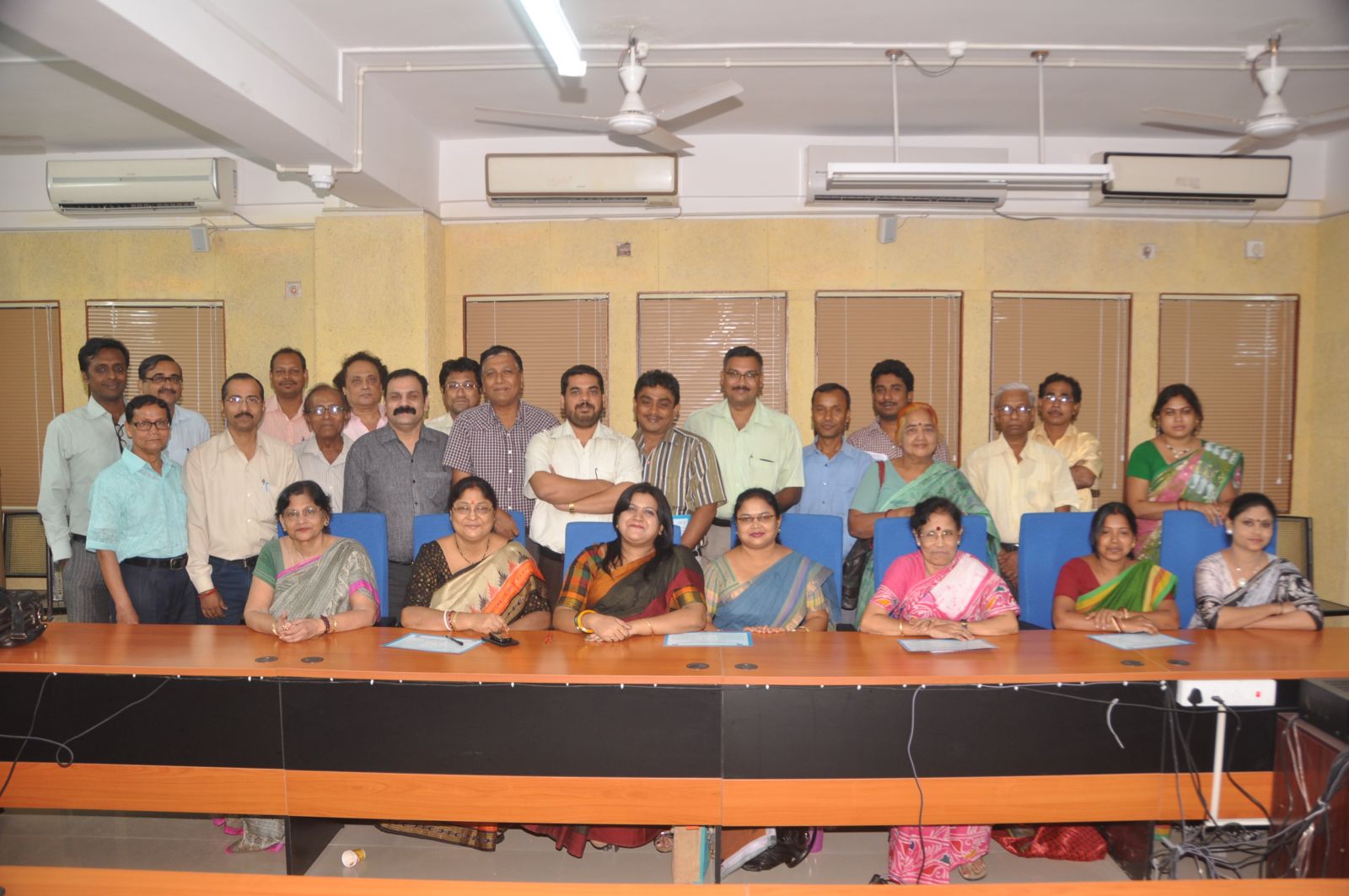Netaji Subhas Open University upgraded 12 Vocational Curricula to NSQF

Kolkata; June 5, 2015: Commonwealth Educational Media Centre for Asia (CEMCA), New Delhi organised a curricula development programme in collaboration with Netaji Subhas Open University (NSOU) in Kolkata, West Bengal from June 3-5, 2015. In this programme, the experts of the School of Vocational Studies of the University upgraded the existing curricula of 12 vocational courses to National Skills Qualification Framework (NSQF).
Professor Subha Sankar Sarkar, Vice Chancellor of the University explained the initiatives on the vocational and skill development programmes of the University. Professor Sarkar appreciated the initiative of CEMCA for upgrading the existing curricula to NSQF in a scientific process and thanked CEMCA/COL for the cooperation and support towards maintaining skills training through this endeavour. Sri Ashokendu Sengupta, Chairperson, State Commission for Protection of Child Rights, Govt. of West Bengal inaugurated the programme. Sri Dilip Ghosh, IAS (Rtd), Member of the State Finance Commission, Govt. of West Bengal shared his experiences on the vocational and skill development initiatives of the government in the state. In the inaugural session, Dr Anirban Ghosh, Officer In-charge of the School of Vocational Studies delivered the welcome address.
While enumerating the importance of NSQF and alignment of the existing curricula into NSQF, Dr Ankuran Dutta of CEMCA said, “For skill development and to impart vocational education there is a dire need to develop enough Open educational resources in various skill sectors. Open Educational Resources can play an important role in realizing the dream of skilling India. Lots of initiatives have been taken so far in this direction and number of government and non-government organisations are contributing towards it. But keeping in view the enormity of population that needs to be trained and variety of areas that they need to be trained in, the different skill sectors should develop Open Educational Resources and Massive Open Online Courses to reach out to the huge population which has a great potential to contribute to the economic growth of the country. CEMCA has been working continuously in creating awareness on OER for skill development and assisting different organisations to develop vocational courses.”
Prof. Vinay Swarup Mehrotra, Professor and Head, Curriculum Development and Evaluation Centre, NSQF and Electronic Media Development Centre, PSS Central Institute of Vocational Education, Govt. of India delivered the keynote address on the National Skills Qualification Framework and acted as the key resource person. Explaining the importance of the NSQF and upgradation of the existing vocational courses to NSQF, Prof. Mehrotra said, “The NSQF notification provides for a five year implementation schedule. It provides that after the third anniversary date (27.12.2016) of the notification of the NSQF (i) Government funding would not be available for any training/ educational program/ course which is not NSQF-compliant, (ii) All government-funded training and educational institutions shall define eligibility criteria for admission to various courses in terms of NSQF levels, (iii) The recruitment rules of the Government of India and PSUs of the central government shall be amended to define eligibility criteria for all positions in terms of NSQF levels, (iv) The State Governments and their PSUs shall also be encouraged to amend their recruitment rules on the above lines. After the fifth anniversary date (27.12.2018) of the notification of the NSQF it shall be mandatory for all training/educational programs/courses to be NSQF-compliant and all training and educational institutions shall define eligibility criteria for admission to various courses in terms of NSQF levels.”
In the three days programme, the experts from different vocational trades upgraded the curricula of 12 vocational courses to NSQF on - Tailoring and Dress Designing, Nature Therapy, Sports and Competitive Yoga, Fitness management, Pre-Primary Teachers’ Education-Montessori, Automobile Repairing & Maintenance, Electrical Technician, Refrigerator & AC Machine, Beautician, Disaster Risk Management, Soft skills, DTP and Networking. After completion of the activity, the participants mentioned that the entire process of upgradation was very much interesting and they could understand the differences between the curriculum and syllabus. The participants thanked the University for providing them the opportunity to upgrade the curricula and CEMCA for providing the technical support and assistance in building capacity.

